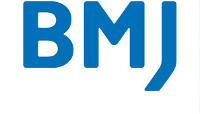Posted by Michael Wonder on 03 Mar 2018
Removing the blindfold on medicines pricing

26 February 2018 - Increased transparency would enable more evidence based policy making.
Tisagenlecleucel (Kymriah), one of several promising chimeric antigen receptor T cell (CAR-T) therapies, is the first gene therapy to get US approval. Novartis announced in September 2017 that the leukaemia treatment would cost $475 000 (£340 000; €390 000)—double the median house price in the US, or 60 years of mortgage payments for the average family.
Medicines pricing debates have run the same, stale course for decades: on one side is the need to ensure access to lifesaving medicines; on the other, the importance of rewarding risky, costly research and development. Unsurprisingly, industry’s estimates of the average cost of developing new medicines—albeit hotly contested—have ballooned every few years. More surprisingly, society has been participating blindfolded in this debate.

